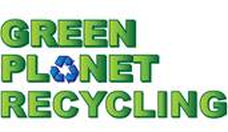Living a sustainable lifestyle has become increasingly important in today’s world. One of the key aspects of sustainability is reducing waste and recycling. By minimizing waste production and adopting effective recycling practices, individuals can make a significant positive impact on the environment. This article will provide you with practical tips and guidance on how to reduce waste and recycle more at home.
Looking for a professional to help you clean your home waste? CONTACT US for a FREE QUOTE
Why Reduce Waste?
Reducing waste is crucial for several reasons. First and foremost, it helps conserve natural resources. By reducing consumption and waste, we can preserve valuable resources like water, energy, and raw materials. Additionally, waste disposal can lead to pollution and environmental degradation. By minimizing waste, we can prevent the release of harmful substances into the environment and protect ecosystems.
The Importance of Recycling
Recycling plays a vital role in waste management. When we recycle, we transform waste materials into new products, reducing the need for raw materials and energy-intensive manufacturing processes. Recycling also helps reduce the strain on landfill sites, which are becoming increasingly scarce. By recycling, we can conserve resources, save energy, and decrease greenhouse gas emissions.
Assessing Your Current Waste
Before implementing waste reduction and recycling practices, it is essential to assess your current waste generation. Take note of the types of waste you produce, including packaging, food waste, and other materials. This assessment will help you identify areas where you can make the most significant impact and tailor your waste reduction strategies accordingly.
Minimizing Packaging Waste
Packaging waste is a significant contributor to household waste. To reduce packaging waste, opt for products with minimal or eco-friendly packaging. Buy in bulk whenever possible to minimize individual packaging. Choose products made from recycled materials, as this encourages the demand for recycled goods.
Composting for Organic Waste
Composting is an effective way to manage organic waste and create nutrient-rich soil for gardening. Set up a compost bin in your backyard or use a composting system suitable for indoor spaces. Compost fruit and vegetable scraps, coffee grounds, tea bags, and yard waste. Avoid composting meat, dairy, and oily products.
Recycling Plastics
Plastics are one of the most common types of waste found in households. Check the recycling codes on plastic containers to determine if they can be recycled in your area. Rinse plastic containers thoroughly before recycling to remove any residue. Consider reducing your consumption of single-use plastics by using reusable alternatives like water bottles and shopping bags.
Recycling Paper and Cardboard
Paper and cardboard can be easily recycled. Place a separate recycling bin for paper waste and collect items such as newspapers, magazines, cardboard boxes, and office paper. Ensure these materials are clean and dry before recycling. Avoid contaminating paper recycling with food waste or soiled materials.
Recycling Glass and Metal
Glass and metal are highly recyclable materials. Rinse glass bottles and jars before recycling, and remove any metal lids or caps. For metal items like aluminum cans or steel cans, crush them to save space in your recycling bin. By recycling glass and metal, you can help conserve resources and reduce energy consumption.
Donating and Repurposing
Instead of throwing away items you no longer need, consider donating or repurposing them. Clothes, furniture, electronics, and household items can often find a new home through charitable organizations or online platforms. Repurposing items creatively not only reduces waste but also adds a unique touch to your living space.
Energy-Efficient Appliances
Investing in energy-efficient appliances can significantly reduce your household’s energy consumption. Look for appliances with high Energy Star ratings, which are designed to use less energy. Energy-efficient appliances not only help the environment but can also save you money on utility bills in the long run.
Reducing Food Waste
Food waste is a significant contributor to household waste. To reduce food waste, plan meals in advance, make shopping lists, and buy only what you need. Properly store perishable foods to extend their shelf life. If you have excess food, consider donating it to food banks or composting it.
Sustainable Shopping Habits
Adopting sustainable shopping habits can make a substantial difference in waste reduction. Prioritize buying products with minimal packaging and choose durable, long-lasting items over disposable ones. Consider purchasing second-hand items or participating in clothing swaps to reduce textile waste.
Educating Others
Spreading awareness and educating others about waste reduction and recycling is essential for creating a sustainable future. Share your knowledge and experiences with friends, family, and your community. Encourage others to adopt environmentally friendly practices and highlight the benefits of waste reduction and recycling.
Conclusion
Reducing waste and recycling are vital steps toward a more sustainable lifestyle. By following the tips outlined in this article, you can significantly minimize waste production and make a positive impact on the environment. Remember, small changes in our daily habits can lead to significant long-term benefits for the planet. Start implementing these strategies today and inspire others to join the movement.
Looking for a professional to help you clean your home waste? CONTACT US for a FREE QUOTE
FAQs
1. How long does it take for organic waste to compost? Composting times can vary depending on factors such as temperature, moisture, and the composition of the organic waste. In general, it takes anywhere from a few months to a year for organic waste to fully decompose into nutrient-rich compost.
2. Can all types of plastic be recycled? Not all types of plastic can be recycled. Different recycling facilities accept different types of plastic, typically identified by their recycling codes. Check with your local recycling program to determine which types of plastics are accepted for recycling in your area.
3. Is recycling really effective in reducing waste? Yes, recycling is an effective method for reducing waste. It helps conserve resources, saves energy, and reduces greenhouse gas emissions. However, recycling should be combined with waste reduction and other sustainable practices to achieve the greatest impact.
4. How can I encourage my community to recycle more? You can encourage your community to recycle more by organizing educational events, sharing information on social media, and collaborating with local authorities to improve recycling infrastructure. Emphasize the environmental benefits and the positive impact recycling can have on the community’s overall well-being.
5. Can I recycle paper with ink or other markings? Yes, paper with ink or other markings can generally be recycled. The recycling process can remove the ink during the papermaking process. However, it’s best to avoid recycling heavily soiled or greasy paper as it can contaminate the recycling process.

